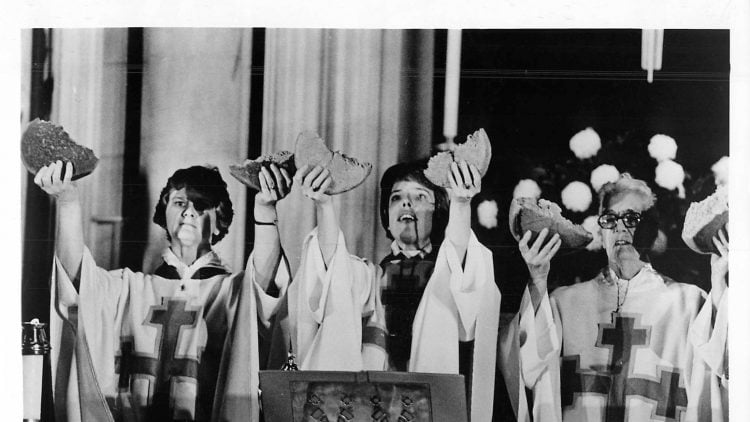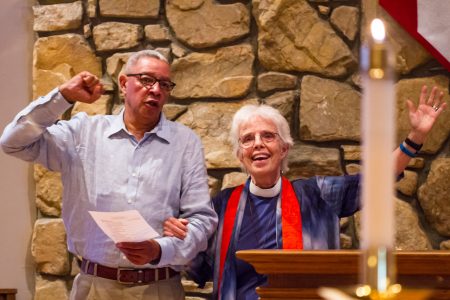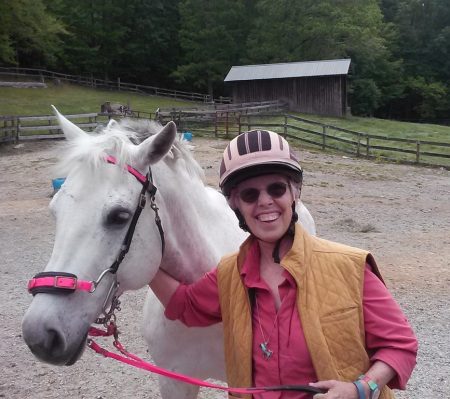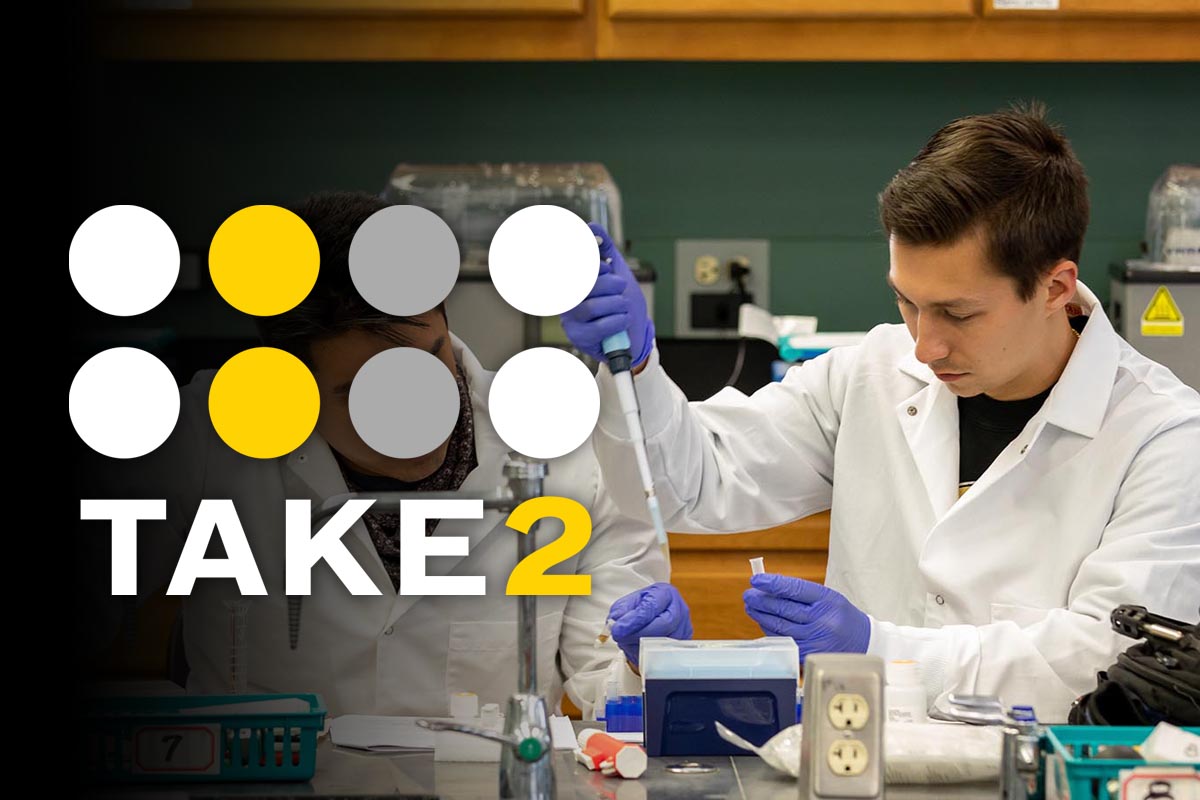New documentary showcases story of alumna, one of the first ordained female priests in the Episcopal Church

The Rev. Carter Heyward ’67 (center) celebrates a eucharistic service at a church in New York in 1974. She and 10 others were the first ordained female priests in the Episcopal Church. Copyright 2018 Religion News Service LLC. Republished with permission of the Religion News Service LLC, all rights reserved.
On a hot, summer morning in 1974, a swarm of reporters, spectators, and police officers surrounded the Church of the Advocate in Pennsylvania. Inside, the sanctuary was filled to capacity as Rev. Carter Heyward ’67 and 10 other women presented themselves to the bishops to be ordained as priests. The event made the evening news and even replaced the front-page headlines about the Watergate scandal the next day.
“It was a much bigger deal than any of us were aware at the time,” Heyward said. “We knew that the church would be shaken up a bit by what we did, but we did not realize how much interest there would be from the news media and the outside world.”
That momentous occasion was the first time women had been ordained as priests by the Episcopal Church—and they did so without the blessing of the Church’s male leadership.
“We were under heavy guard because there had been death threats against us,” Heyward said. “The Philadelphia police were there, but so were the Black Panthers and a group called Dykes on Bikes. They all worked together to protect us, which I think is a wonderful image of the realm of God.”

Carter Heyward ’67
Heyward and her colleagues are the subject of a new documentary planned for release in 2022. The film features footage from the ordination service, as well as recent interviews with Heyward and other members of the Philadelphia 11. It will also highlight Heyward’s leadership in the fight for equal rights.
“Her vision was—and still is—a transformation of the church that breaks down the institutions so that everyone can participate,” said Margo Guernsey, director and producer. “Every one of the women in the film has a different story, and one of the fun things to watch is each of their different leadership styles. Carter was a very natural spokesperson and very good at bringing people together.”
Heyward found her passion for activism long before the ordination in Philadelphia. As an undergraduate at R-MWC, she was an active participant in civil rights protests and was inspired by her progressive-minded religious studies professors.
“Those professors were way ahead of the curve in terms of teaching multicultural diversity,” Heyward said. “In our theology classes, we would not only read works by white men who were renowned as systematic theologians—we would also read things by Malcolm X and Martin Luther King.”

Carter Heyward ’67 in 2015.
The lessons she learned at college carried over into her own teaching career. Following her ordination, Heyward earned a Ph.D. at Union Theological in New York City and taught theology for 30 years at the Episcopal Divinity School in Cambridge, Massachusetts. Over the course of her career, she primarily taught classes in feminist liberation theology, sexual ethics, and LGBTQ studies. Heyward came out as a lesbian herself in 1979, and mentored many other LGBTQ students.
After her retirement in 2005, she moved to a rural community in North Carolina. There, she helped create a therapeutic horseback riding program for children and people with special needs. She also helped begin a local chapter of the NAACP and currently serves as its vice president. In her spare time, Heyward has written multiple books and occasionally preaches at a Unitarian Church.
“These days I’m finding myself more of a Unitarian than a traditional Christian, even though I’m still an Episcopal priest,” Heyward said. “Throughout my life, I’ve considered myself more of a Universalist Christian. I really do believe that we’re all in this together, and our denominations are such an unimportant dimension of our religious experience.”
Tags: alumnae, Vita No. 8
